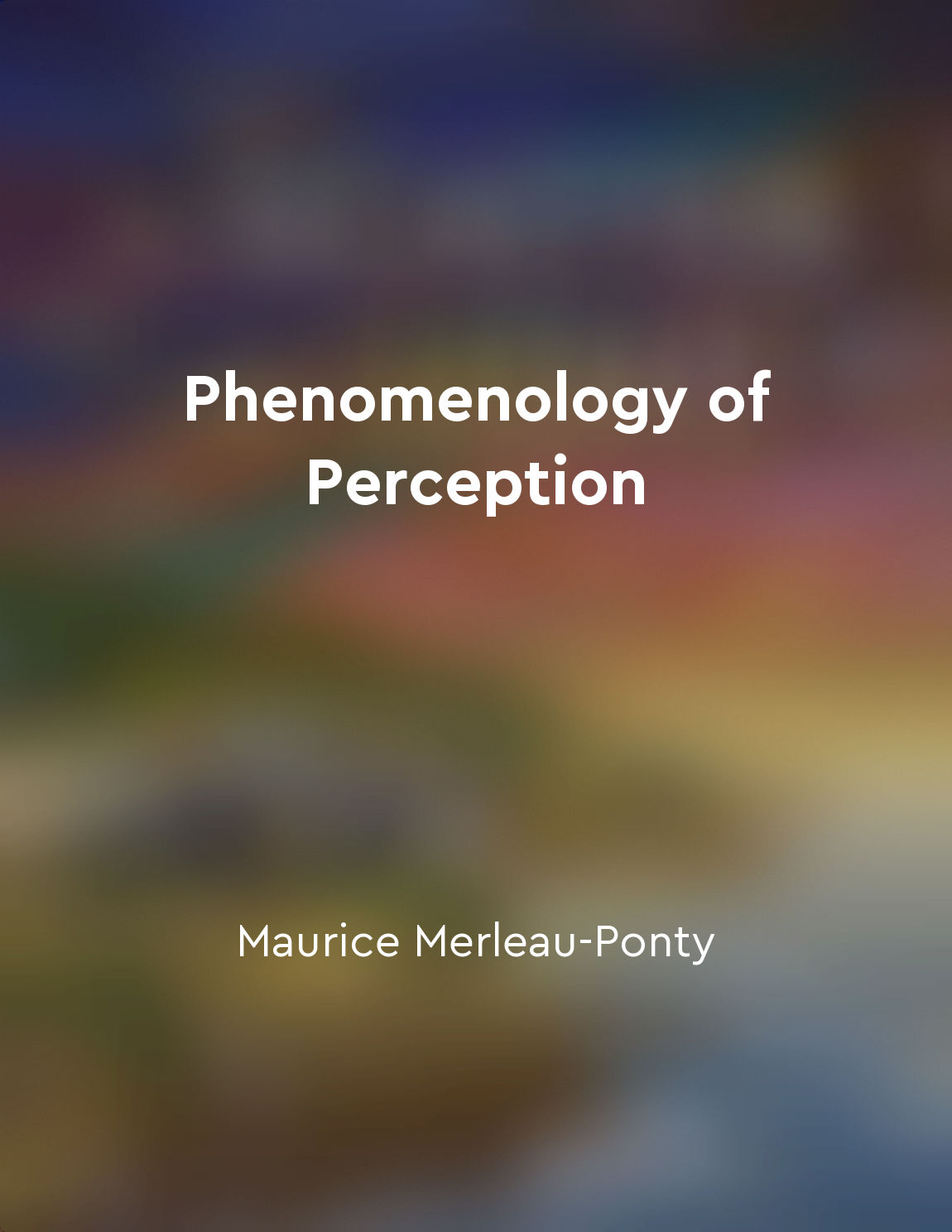Our bodily experiences shape our perceptual abilities from "summary" of Phenomenology of Perception by Maurice Merleau-Ponty
The way we perceive the world is deeply intertwined with our bodily experiences. Our bodies are not separate from the world around us, but rather the means through which we engage with and make sense of our surroundings. Our perceptual abilities are not solely a product of our minds, but are fundamentally shaped by the way in which our bodies interact with the environment. Merleau-Ponty argues that our sensory experiences are not passive, but rather active and dynamic processes that involve our entire being. Our bodies are constantly in motion, engaging with the world through touch, sight, hearing, and other senses. These bodily experiences are not just physical sensations, but are also deeply intertwined with our emotions, memories, and desires. Through our bodily experiences, we develop a certain "perceptual style" that shapes the way we interpret and make sense of the world. This perceptual style is not fixed or predetermined, but is constantly evolving and changing as we interact with our environment. Our bodily experiences give rise to certain habits and patterns of perception that influence the way we see, hear, and understand the world around us. Our bodies serve as the mediator between ourselves and the world, allowing us to actively engage with and participate in our surroundings. Our bodily experiences are not just individual and isolated, but are also social and cultural, shaped by the norms, values, and beliefs of the society in which we live. Our bodies are not just passive instruments of perception, but are active participants in the ongoing process of making sense of the world.- Our bodily experiences are inseparable from our perceptual abilities, shaping the way we perceive, interpret, and engage with the world around us. Our bodies are not just the vessel through which we experience the world, but are also the lens through which we make sense of our surroundings. Our perceptual abilities are deeply rooted in our bodily experiences, reflecting the dynamic and complex relationship between ourselves and the world.


